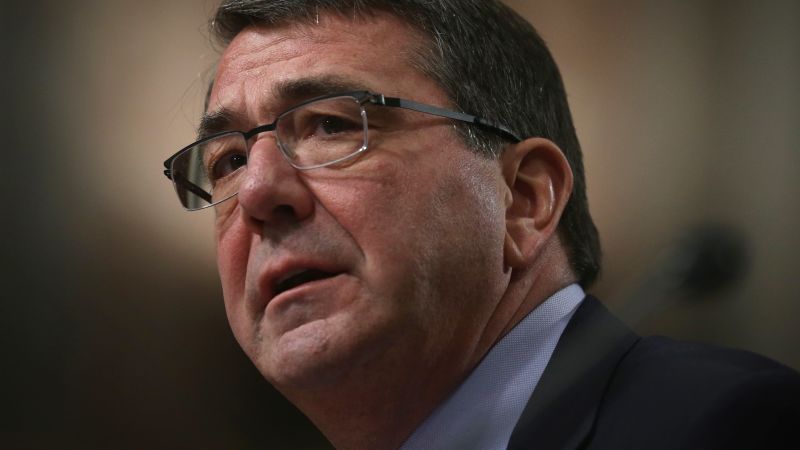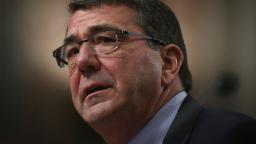

Washington
CNN
—
Ashton Carter, who served as President Barack Obama’s final defense secretary, has died, his family said. He was 68.
Carter, who led the Defense Department from February 2015 to January 2017, suffered a “sudden cardiac event” on Monday night in Boston, his family said in a statement. He is survived by his wife, Stephanie, and his children, Ava and Will.
Carter was a “a man of extraordinary integrity” who was “guided by a strong, steady moral compass and a vision of using his life for public purpose,” President Joe Biden said in a statement Tuesday afternoon.
“I was Vice President at the time, and President Obama and I relied on Ash’s fierce intellect and wise counsel to ensure our military’s readiness, technological edge, and obligation to the women and men of the greatest fighting force in the history of the world,” Biden said.
In leading the Pentagon, Carter oversaw the final years of US involvement in Afghanistan under Obama’s presidency and US efforts to combat the rise of ISIS in the Middle East, which included the deployment of US troops. His tenure also saw efforts to expand the available roles of women in combat as well as lifting a ban on transgender people being able to serve openly.
Taking over from Chuck Hagel, who was forced out as defense secretary in November 2014, Carter was immediately tasked with addressing the rise of ISIS, which by then had taken significant territory in Iraq. Although Obama had made withdrawing US military forces from Iraq a key priority of his foreign policy, he ultimately recommitted US troops to the country to deal with the terrorist group.
“It’s necessary but not sufficient to destroy ISIL in Iraq and Syria because this is where it began and is what I have called the parent tumor of the cancer,” Carter, using another term for the group, told reporters during a visit to Baghdad in 2016.
“Like cancer, ISIL has spread to … other places and it also threatens our homelands,” he said then.
Under Carter’s leadership, all US military combat positions were opened up to women, and in 2016, the Pentagon lifted a ban on out transgender people being able to serve.
Having studied the issue for almost a year, he said at the time that the decision was “a matter of principle.”
“We don’t want barriers unrelated to a person’s qualification to serve preventing us from recruiting or retaining the soldier, sailor, airman or Marine who can best accomplish the mission. We have to have access to 100% of America’s population,” he said. “Although relatively few in number, we’re talking about talented and trained Americans who are serving their country with honor and distinction,” he said. “We want to take the opportunity to retain people whose talent we’ve invested in and who’ve proven themselves.”
Regarded as a “technocrat” in part due to his degrees in theoretical physics and medieval history from Yale and Oxford – he authored or co-authored 11 books and over 100 articles on physics, technology, national security and management, according to his Department of Defense biography – Carter had a long and distinguished career in government. His career began in 1981, working as an analyst in the Office of Technology Assessment, International Security and Commerce Program for Congress. He served at the Pentagon as assistant secretary of defense for international security policy under then-President Bill Clinton from 1993 to 1996 and as under secretary of defense for acquisition, technology and logistics from 2009 to 2011.
In late 2014, following the Republican takeover of the Senate, Obama was looking for a new defense secretary who would not only better address the rise of ISIS but would be able to be confirmed. In announcing Carter as his selection, Obama said, “having served both Republican and Democratic Secretaries, he’s respected and trusted on both sides of the aisle.”
The announcement was met with widespread praise. Sen. John McCain, then the incoming Republican chairman of the Armed Services Committee, called him “one of America’s most respected defense professionals, respected by Republicans and Democrats alike.”
Carter was confirmed in the Senate by a vote of 93 to 5.
Carter was also a recipient of the Department of Defense Distinguished Service Medal, which is the highest award given to civilians from the department, on multiple occasions. At the time of his death, he had been a professor at the Harvard Kennedy School as the Belfer professor of technology and global affairs, and director of the Belfer Center for Science and International Affairs.
This story has been updated with additional details and reaction.
